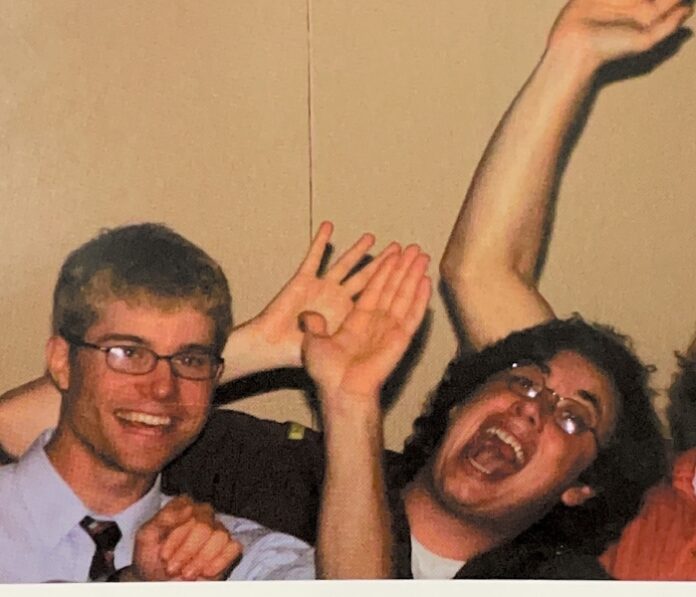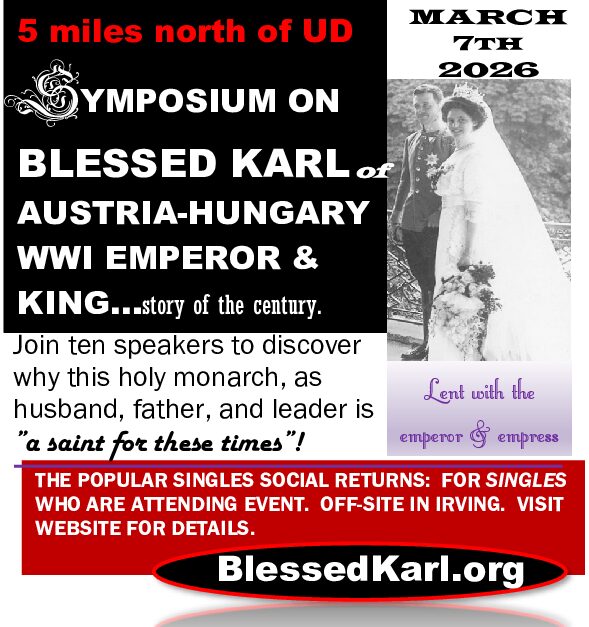Written by Patricia Blume, Aine O’Brien, and Madelynne Van Roekel
Founded in 1956, the University of Dallas has been the place of study and formation for many classes of students. As time has passed and many people have continued to come and go, one may question how the community of the University of Dallas has changed or remained the same. The professors who were once students here have created a picture of what UD has been like throughout the years.
Professor Khirallah of the Education Department graduated from UD in 1971. The core has remained the same since she was a student, and it has maintained the same goal of teaching what it means to learn, not how to develop for a certain profession.
As there was absolutely nothing to do in Irving during her time as a student, everything students did was on campus. This of course caused student life to be very active on campus, and even though the Mall was only planks of wood placed over muddy ground, students always found a way to come together. (Khirallah swears that there are still shoes under the Mall from when students would fall off the planks and get stuck).
“There was a lot of camaraderie because all we had was each other,” said Khirallah. Students got to really know one another, they would take care of each other, and build lifelong friendships. Khirallah says that that is true for the student body today.
Dr. Roper, dean of students, was also a graduate of UD in the class of ‘84. Dr. Roper believes that UD has always prioritized its relationship between professors and students and that he has the utmost joy in seeing his former students rise to the level of professors.
He states that the spirit of UD has remained consistent, despite changes like the introduction of cell phones and the internet. “The playful seriousness and serious playfulness,” said Roper, is the way he always characterizes UD students. He remarks that UD has a healthy attitude of self-deprecation and playfulness that serve as essential elements of the school’s culture. He believes the abundance of UD traditions and the Rome program predominantly shape the UD student and foster the community.
Dr. Voisin Fonteneau, art history professor, graduated from UD in 1995. She loves that UD is teaching the same books, and is still bringing the same heroes and heroines to life, not to be placed back on a dusty shelf, but to be applied to our individual lives. “There’s a fearlessness in the curiosity of the students that I felt then and feel still today,” said Voisin Fonteneau.
As a student, she worked at the Capp Bar, where students would often be on the long couches inside, smoking and napping, making it not so pleasant for her to work there. Around campus, students created an environment that was very warm and perhaps innocent. With only around 1,000 students, UD’s campus was a very intimate place to be.
Time at UD for Dr. Voisin Fonteneau can be compared to a labyrinth, where students are finding their way to the center. In the labyrinth, you may lose your way many times, but “you eventually find your way to the center where you connect with God and God within you.” The hope, then, is that as you walk back out, you carry the wisdom you have gained with you. There will be a better knowledge of who you are and what you want to bring to the world. UD was this labyrinth then, and is so now.
Professor Lemieux of the Drama Department graduated in 1998. He reflects on how he has noticed that conversations between students and professors have changed: students are much more open in talking about the concerns they have to deal with, such as finances and mental health, which are topics they would not have spoken to professors about before. A constant of UD, however, is that students come to UD to change the world, and that students remain kind and generous in such authentic ways.
Dr. Danze of the Classics Department graduated from UD in 2001. She was very involved in the theater program at UD and one of the biggest changes she mentioned was the loss of the Margaret Johnson Theater as the hub for theater activities. However, the biggest change that Dr Danze noted was that the Mall is no longer as playful as it was when she was a student.
On the Mall, people were constantly playing pranks on each other, advertising for clubs, or doing other crazy things. The Mall was a place to play. Dr. Danze fondly remembers how students would set up a stage in front of the tower and perform medieval plays and Greek tragedies. She remarked that those performances are a reminder of how UD fosters performance and fun, and mixes it with academia. The Mall remains to be the center of campus– between the library, a beacon of academia, and the tower, which is a beacon of hope.
Fr. Joseph Van House of the Theology Department graduated from UD in 2003. He remarked that for the most part, the UD student body is much the same as it was when he studied here. He talked about the generational changes of iPhones and upgraded GPS systems, which, he noted, come in handy when traveling Europe.
In his Rome semester, he and a few friends were supposed to meet another group of UD students in Paris, so they agreed to meet outside a specific museum at noon because none of them could communicate with each other via iPhones. The other group of students never showed up. These are problems that today’s UD students do not have to deal with.
Despite the technological upgrades and a more intense political environment, Fr. Joseph said that the personality of UD students remains the same. He classified the UD personality as high spirited, gregarious, devout, respectful, and committed to the idea of learning.
Fr. Thomas Esposito of the Theology Department graduated in the class of 2005. Overall, Fr. Thomas believes the culture at UD has remained largely the same with the addition of many in-state students. As a former athlete at UD, he laments that student athletes are still not treated with the respect they deserve. Lastly, he notes that the Catholic liberal arts identity has not changed significantly since his time as a student here.
Dr. West of the English department graduated in the class of 2006. Dr. West believes UD’s core values have been delicately preserved and the main traditions, like Charity Week, have remained steady. Although he feels the larger class sizes make it harder to maintain traditions, the enduring spirit at UD has persisted throughout time.

